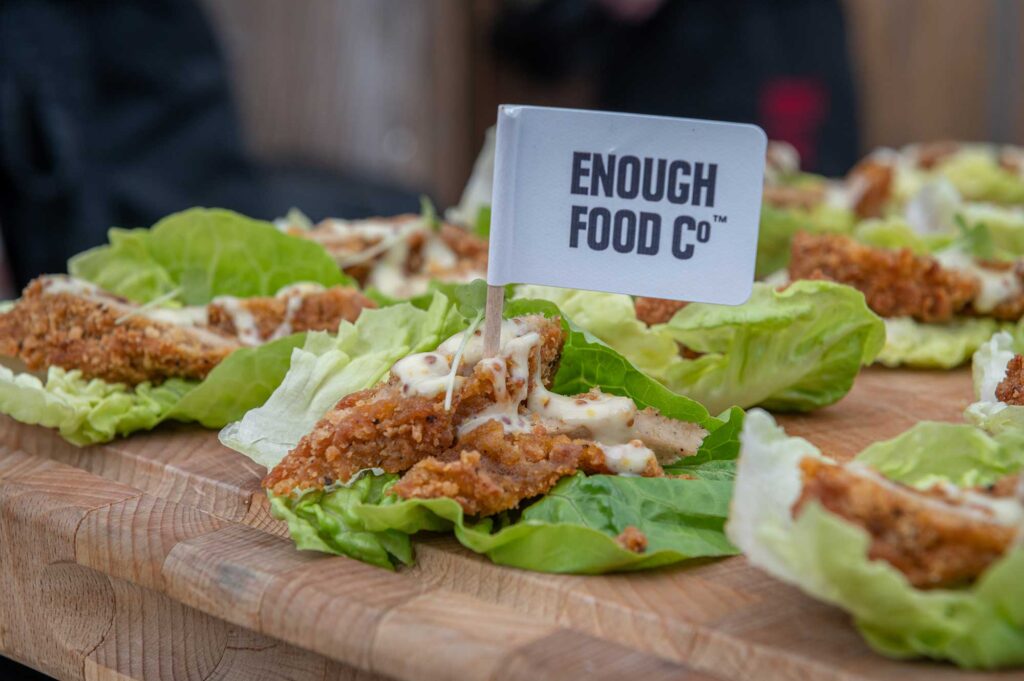
Global protein consumption is expected to double in the next 30 years. Animal protein cannot meet this demand, as the livestock sector is already responsible for 15% of all greenhouse gas emissions. Therefore, producing huge amounts of tasty, nutritious and sustainable alternative proteins is important. Jim Laird, CEO of ENOUGH: “Currently, there is a constraint on growth because of limited supply chain capacity to deliver high-quality protein sources at scale, which can be used to make tasty foods.”
Andrew Beasley, commercial director of ENOUGH: “We support food companies to produce sustainable foods that not only taste delicious, but are also healthy and nutritious. Using minimal processes and short ingredient lists will give confidence to companies, retailers and consumers alike and is important for the further growth of the sector.”
Franck Monmont, Managing Director for Cargill’s Starches, Sweeteners and Texturisers Business in Europe, said, “As global demand for proteins continues to rise, this partnership with ENOUGH serves as another way to help realise our mission to feed the world in a safe, responsible and sustainable way.”
Fermentation
ENOUGH grows ABUNDA® mycoprotein by fermenting fungi using renewable resources. This creates the most sustainable source of food protein possible. The impact of switching 1 million tonnes of animal sources to ABUNDA is equivalent to replacing 5 million cows, or more than 1.2 billion chickens, and reducing more than 6 million tonnes of CO2 emissions or planting more than 30 million trees.
The Zeeland plant is 15,000 square metres and has a production capacity of 10,000 tonnes per year. The plant is located next to the Cargill plant in Sas van Gent, with which it can cooperate efficiently and zero-waste. Plans are to produce 60,000 tonnes by 2027.
ENOUGH is part of the European project Plenitude, which involves partners from the entire production chain. The venture is supported by the Circular Bio-based Europe Joint Undertaking (CBE JU), with funding of €16.9 million.
Image: ENOUGH



